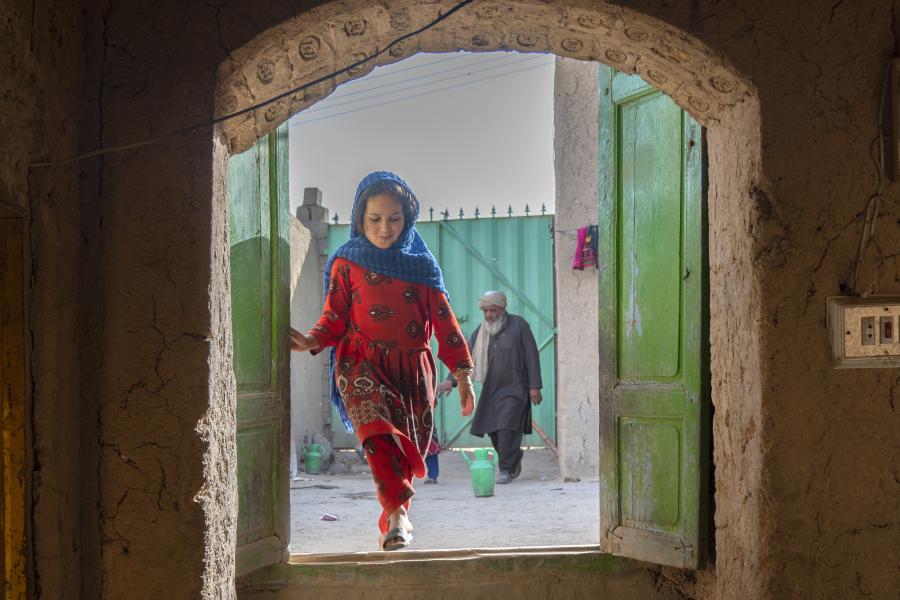2023 population planning figures
- Refugees and asylum-seekers in Afghanistan (from Pakistan): 42,400
-
Registered Afghan refugees and asylum-seekers: 2.4 million, 41% women and 40% children*
-
IDPs: 2.2 million**, 49% women and girls, 58% children
-
Refugee and IDP returnees***: 740,000
*Demographics based on the 2021 annual statistical report.
**Conflict-induced IDPs.
***A further 5 million Afghans of various statuses remain in the Islamic Republics of Iran and Pakistan.
2023 situation overview
The end of the large-scale conflict in Afghanistan in 2021 led to an improvement in the overall security situation and a marked reduction in civilian casualties, enabling humanitarian access to all provinces, including many areas that had been inaccessible for decades.
At the same time, many challenges remain, particularly for women and girls, including widespread food insecurity, soaring inflation, and high economic instability exacerbated by sanctions and loss of aid, limited livelihoods, and more frequent and severe climate shocks.
UNHCR has recorded over 1 million IDPs who have already voluntarily returned since the end of the conflict and an estimated 60,000 refugee returnees and 680,000 IDP returnees are anticipated in 2023. UNHCR will continue to deliver on its scaled-up response, focusing on the provision of cash assistance, core relief items and shelter while continuing to support community- and area-based investments in Priority Areas of Return and Reintegration (PARRs).
While the situation inside Afghanistan remains fluid, the inter-agency Refugee Response Plan (RRP) will continue in 2023 in the Islamic Republics of Iran and Pakistan and Tajikistan, Turkmenistan, and Uzbekistan. UNHCR will maintain an inclusive and collaborative approach to leading and coordinating the plan, which grew from 11 partners in 2021 to 40 in 2022.
Building on the capacities and expertise of affected populations to act as first responders, the plan will respond to the needs of Afghans and host communities in line with the Solutions Strategy for Afghan Refugees. Efforts will also continue to strengthen essential facilities and services in PARRs to support durable solutions and create conducive conditions for the sustainable reintegration of returnees.
The Islamic Republics of Iran and Pakistan have hosted Afghan refugees for over four decades and continue to generously host more than 2 million registered refugees from previous waves of displacement, and a further 5 million Afghans of varying statuses. UNHCR will support host governments in their efforts to include Afghans in the provision of national services such as health and education while supporting refugee-hosting communities. UNHCR will also look for ways in which social safety nets can improve Afghans’ resilience and advance durable solutions.
